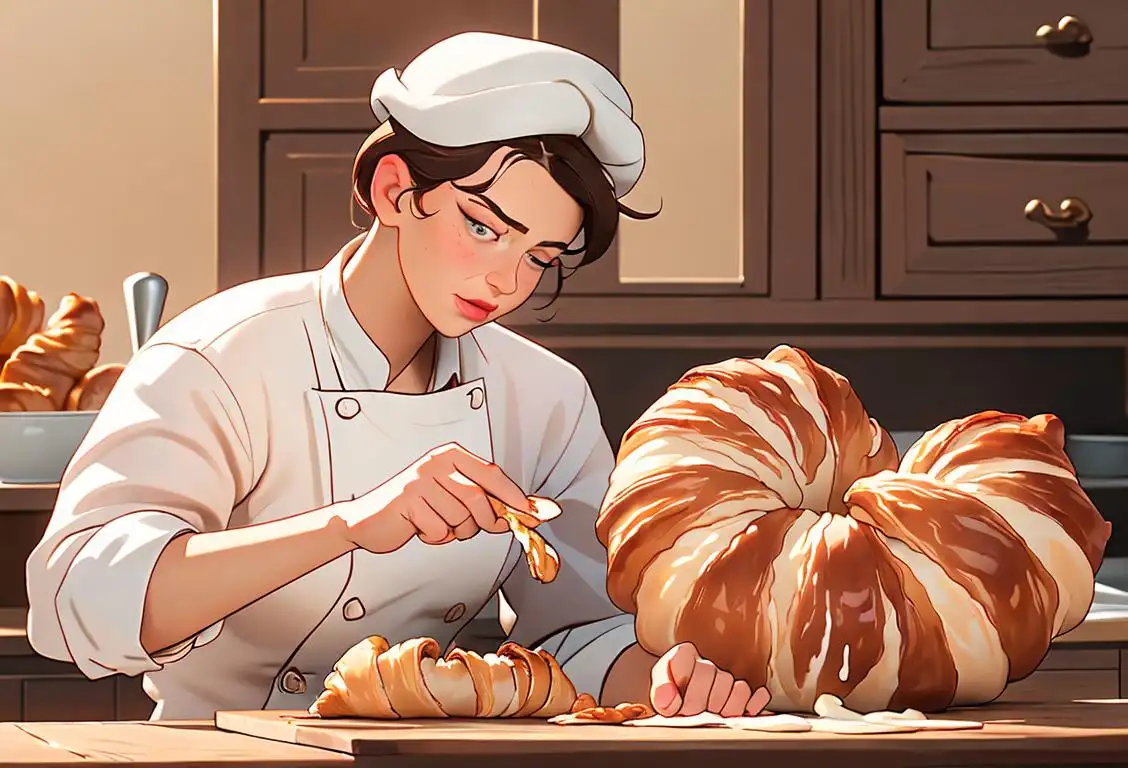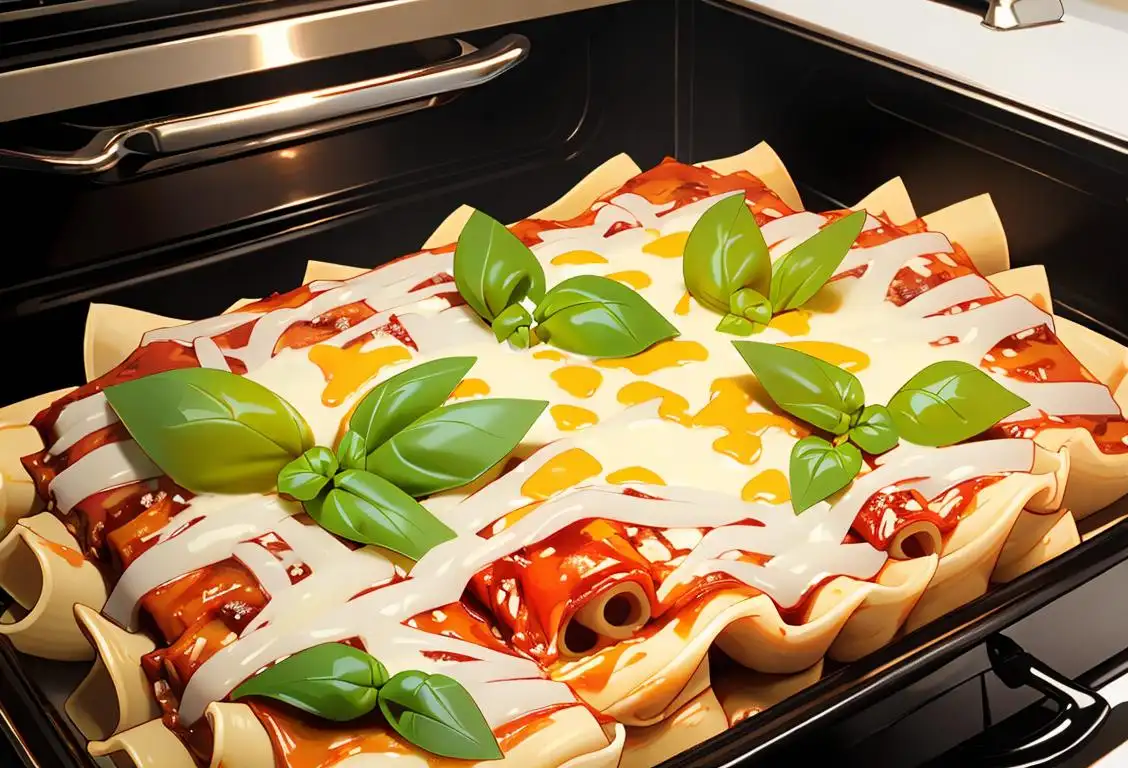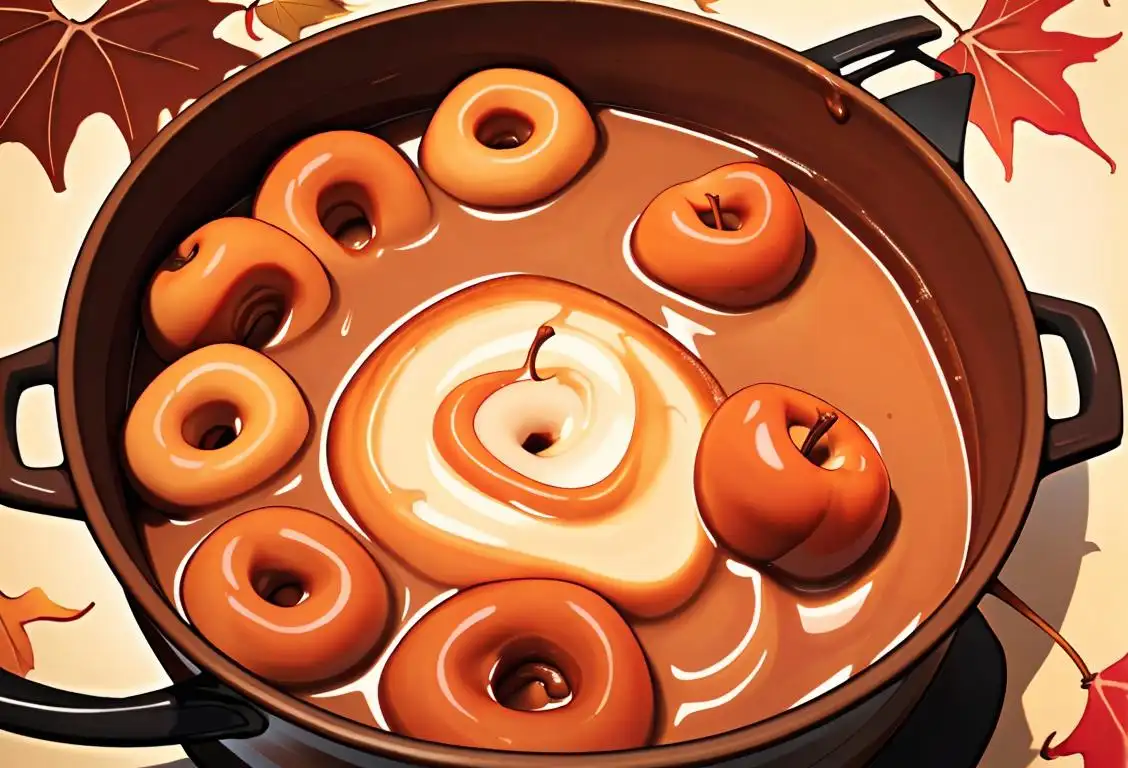National Pastry Day

Who can resist a flaky croissant or a warm apple turnover? Not many, apparently. We're here to celebrate National Pastry Day, a day that gives us a collective pardon to indulge in our favorite baked treats. Surprisingly, the day is not dedicated to expanding our waistlines, but to appreciate the art of baking.
When is Pastry Day?
It's national pastry day on the 9th December.
A Slice of Pastry History
Pastry, the buttery cousin of bread, has brought joy to our sweet-tooth since the time of ancient Egyptians. They loved their honey-covered pastries, quite like we love a warm Danish!
Internet Celebrations: A Sea of Pastries
The Internet went on a baking spree on 9th December 2015. With over 4344 online mentions, it was all about biting into a delicious Kouign Amann and posting drool-worthy photos.
So Why National Pastry Day?
Simply put, it's a day to savor and appreciate the work that goes into making these pretty little things. Plus, it's an excuse to have an extra pastry (or two) without a guilt trip.
How to Celebrate?
Bakeries across the nation celebrate it with special offers. So brushing over your basic baking knowledge would definitely come in handy. And if you're not up for baking, you can always make your local baker's day by complimenting their strudel!
History behind the term 'Pastry'
Ancient Egypt (Circa 2600 BCE)
Birth of Bread Rich in History
The story of pastries starts with the ancient Egyptians, who are credited with the invention of bread. Around 2600 BCE, they discovered the art of milling wheat to make flour, which led to the creation of a wide variety of bread. Egyptians became skilled bakers, using simple techniques like grinding grains and baking the dough on clay hearths.
Ancient Rome (Circa 1st Century BCE)
Crustas - Early Hints of Pastry
The Romans embraced the art of baking and took breadmaking to a whole new level. In the 1st century BCE, they developed 'crustas,' which were a kind of pastry made by mixing different types of wheat flour with water or wine. The crustas were then filled with sweet and savory ingredients, including fruits, nuts, and meat.
Medieval Europe (5th-15th Century)
Pies Are on the Rise
During the Middle Ages, pies became popular across Europe. These early pastries were made with rich and flaky dough, often filled with meat, fish, or fruits. Pies were a convenient way to preserve and transport various ingredients. The crusts were sometimes discarded, serving as a container for the filling, much like a modern-day pie-crust.
Renaissance (15th-17th Century)
Refining Techniques and Royal Delicacies
In the Renaissance period, pastry-making developed into an art form. French and Italian bakers refined their techniques and introduced elaborate pastries into royal courts. Puff pastry, created by wrapping dough around a layer of butter, gained popularity as a delicate and flaky texture was achieved. Pastries became synonymous with luxury and were often served at extravagant banquets.
Industrial Revolution (18th-19th Century)
From the Elite to the Masses
The Industrial Revolution marked a significant shift in pastry production. With advancements in technology, pastries that were once exclusive to the upper classes became more accessible and affordable for the masses. Bakeries and patisseries emerged, offering a wide range of pastries to cater to different tastes and budgets. The availability of pastry recipes and ingredients expanded, contributing to their widespread popularity.
Present Day
Continuing the Pastry Tradition
Pastry-making has evolved over the years, with various culinary traditions incorporating their unique styles and flavors. From delicate French pastries like croissants and éclairs to flaky British pies and American apple turnovers, pastries continue to delight people all around the world. Celebration of pastries has even led to the creation of dedicated pastry days and events, showcasing their enduring cultural impact.
Did you know?
Did you know that in 2015, A French pastry chef created the world's longest éclair, coming in at 663 feet and 7 inches? Now that's a lot of choux pastry!Tagged
awareness food fun history celebrations bakingFirst identified
2nd April 2015Most mentioned on
9th December 2015Total mentions
4344Other days
Pastry Day
Donut Donut Day
Senior Citizens Day
Swiss Day
Vodka Day
Lasagna Day
Potato Chip Day
Martini Day
Caramel Day
Carrot Cake Day








